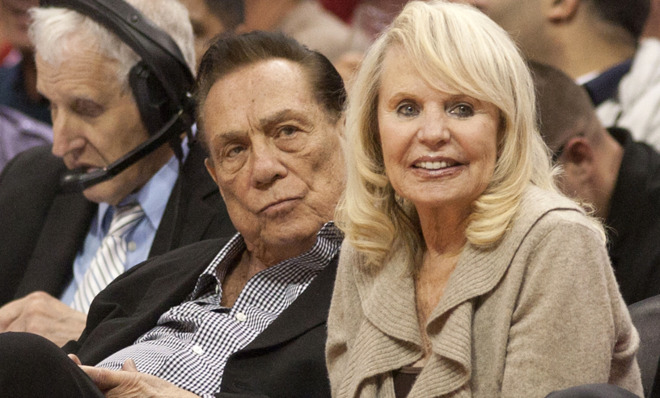The mystery of the openly racist NBA owner
How did he get away with such odious attitudes for so long?


A free daily email with the biggest news stories of the day – and the best features from TheWeek.com
You are now subscribed
Your newsletter sign-up was successful
Donald Sterling, the owner of the Los Angeles Clippers, has a long racial rap sheet. It has not been hidden.
Just five years ago, Elgin Baylor, an NBA legend and former Clippers GM, testified to Sterling's plantation owner mentality.
And in 2003, Sterling settled with the Justice Department (it was the largest settlement offer ever!) over complaints that he discriminated against black and Latino tenants at buildings around Los Angeles. The details are incredible.
The Week
Escape your echo chamber. Get the facts behind the news, plus analysis from multiple perspectives.

Sign up for The Week's Free Newsletters
From our morning news briefing to a weekly Good News Newsletter, get the best of The Week delivered directly to your inbox.
From our morning news briefing to a weekly Good News Newsletter, get the best of The Week delivered directly to your inbox.
According to one former property manager, Sterling was obsessed with how black people smell (apparently, they smell bad to him) and thought they clashed with the image he was "cultivating."
Here is a man with a public, documented history of architecting and enforcing racism for profit: At one apartment complex in Los Angeles' Koreantown, Sterling even hired former Korean soldiers to harass and intimidate non-Korean tenants.
So: Finally, his racism seems to have been caught on tape. (I'm making the warranted assumption that the tape leaked to TMZ is genuine and that its edits do not undercut this thesis.)
Sterling is the bad guy here, of course, but the case roster of those complicit in covering for him is long:
A free daily email with the biggest news stories of the day – and the best features from TheWeek.com
- the NBA itself, and its current and former commissioners
- the NBA's megastar athletes, including Chris Paul, the Clippers star who is also the chief representative at the player's union
- Sterling's fellow owners
- the Los Angeles and professional basketball media
No one with an open history of racism should be allowed to own a professional basketball team, in modern America, without fierce resistance.
An article about Sterling in ESPN's magazine called his life "uncontested." That's an apt description. The reporter followed Sterling to an NAACP gathering, where he proceeded to brag about how easy it was to pull the wool over the eyes of the organization.
Referring to the reporters tailing him, he asked other attendees, "Do you know why they're here? They want to know why the NAACP would give an award to someone with my track record."
Yeah. Good question.
The answer is apparently that he gave the organization money. In fact, he gave a lot to organizations devoted to the poor and to helping minority groups.
In keeping with the attitude he takes towards players on his team, he sees this as an act of racilesse oblige. He understands that he gains respect and prestige in a community that rewards wealthy liberals who donate to good causes and make flashy shows out of his own generosity.
The circumstances of Sterling's present predicament are much less interesting than the conspiracy of silence that allowed him to get into it in the first place.
Marc Ambinder is TheWeek.com's editor-at-large. He is the author, with D.B. Grady, of The Command and Deep State: Inside the Government Secrecy Industry. Marc is also a contributing editor for The Atlantic and GQ. Formerly, he served as White House correspondent for National Journal, chief political consultant for CBS News, and politics editor at The Atlantic. Marc is a 2001 graduate of Harvard. He is married to Michael Park, a corporate strategy consultant, and lives in Los Angeles.
-
 Political cartoons for February 21
Political cartoons for February 21Cartoons Saturday’s political cartoons include consequences, secrets, and more
-
 Crisis in Cuba: a ‘golden opportunity’ for Washington?
Crisis in Cuba: a ‘golden opportunity’ for Washington?Talking Point The Trump administration is applying the pressure, and with Latin America swinging to the right, Havana is becoming more ‘politically isolated’
-
 5 thoroughly redacted cartoons about Pam Bondi protecting predators
5 thoroughly redacted cartoons about Pam Bondi protecting predatorsCartoons Artists take on the real victim, types of protection, and more
